|
Do you find it hard to get your skin perfect? Do you often feel like there is no way to get the glow back after a long day? How do you cope with all these problems that are virtually inescapable? Well, we have some wonderful news for you. There are easy ways to deal with all these skin troubles and make your skin look flawless again. With the right tips and advice, you can bring out the beauty in your skin. So read on to discover some of the best tips for flawless skin; it’s almost like having a skincare fairy godmother giving you insider secrets for gorgeous, glowing skin.
Don’t forget to cleanse The first step to any skincare regime is to cleanse your face. Cleansing removes all the grime, dirt, and impurities that have built up on the skin during the day and leaves you with glowing, radiant skin. This is particularly important if you wear any makeup and want to get rid of that too. Washing your face thoroughly twice a day will not only help you avoid breakouts but will also keep your skin looking young and healthy. So don’t forget to add this step to your skincare regime to get flawless skin. Eating Right Is Key Your diet is one of the most important factors to keep in mind when you want flawless skin. Your diet can either keep your skin clean and radiant or it can clog your pores and leave you with dull, dry skin. You don’t have to follow a strict diet plan to have clean, radiant skin. Just make sure you’re getting enough water, fruits, and vegetables, and your skin will thank you. There are also a few specific foods you should keep in mind when trying to get your skin clean and glowing. Yogurt is great for sensitive skin and will leave it soft and smooth. Sweet potatoes are full of vitamin A, which is crucial for healthy skin. And carrots are rich in beta-carotene, which makes your skin look brighter and more youthful. Go For Natural Exfoliation While we’re on the topic of exfoliation, we’d like to talk about natural exfoliation. We know you’ve heard this term before and seen it in different skincare products, but have you ever wondered what it means? Exfoliation is the process of removing the dead skin cells on your face so new, healthy skin can grow in their place. This is crucial for healthy, glowing skin. When you’re cleaning your face, you’re only getting rid of a small amount of dead cells at the top of your skin. You need to remove the dead cells that are deeper down in your skin so they can be replaced with new, healthy cells. You can go for chemical exfoliation, but we recommend going for natural exfoliation. It’s much safer and gentler on your skin. Use The Right Cleansing Tools Cleansing is a key step to getting that crystal-clear skin, but you have to use the right tools for the job. When you’re choosing a cleanser for your skincare regime, make sure it’s gentle on your skin. Avoid exfoliating cleansers as these will be too harsh for your skin and can cause damage. Clean your face with warm water and a soft washcloth or cotton pads. Make sure you’re spending enough time on this step to ensure that you’re getting rid of all the impurities on your face. And don’t forget about your neck and décolletage too! Protect Your Skin From The Sun As much as we’d all love to look like we’ve been sunbathing all day, getting a tan isn’t always that easy or healthy. If you want to get a beachy glow without actually going to the beach, you’ll have to protect your skin from the sun. While sunscreen isn’t all that exciting, it is just as crucial as moisturizer in your skincare regimen. If you want to avoid looking like an old prune, you’ll need to apply sunscreen with SPF 30 or more daily. If you’re looking for a more natural way to protect your skin from the sun, you can also try applying a few drops of coconut oil to your face. Coconut oil also helps fight acne and other skin ailments, so it’s a great all-round product for your skin. Now that you know what you have to do, go ahead and get your skin ready for summer. And remember to stay hydrated and moisturized at all times, no matter what the season! With these best skin care tips, you’ll have the most flawless skin you’ve ever had in no time. So what are you waiting for? Get your skincare regime ready and show that skin who’s boss!
0 Comments
You probably already know that collagen is the protein that keeps your skin plump and youthful. But what you might not know is that getting enough of it can be tricky. As we get older, our bodies naturally produce less collagen, which leads to wrinkles and sagging skin. Luckily, there are many ways to boost your collagen intake from foods, supplements, and lifestyle changes. Below, we’ll talk in-depth about the details of how to boost your collagen safely and effectively without injections or risky surgeries. What is Collagen? Collagen is a protein that makes up our skin, bones, and joints. It gives us a youthful glow, strong hair and nails, and strong teeth and bones. It’s often referred to as the “youth protein” because it keeps our skin looking plump and smooth, while also protecting us from wrinkles, sagging skin, and wrinkles. Our bodies naturally produce less collagen as we get older. This is why anti-aging skincare products contain collagen boosters. There are two types of collagen:
How to Boost Your Collagen Naturally Boosting your collagen naturally can seem like a daunting task, but it’s surprisingly easy. And it’s important to do so, because getting enough collagen is crucial for a youthful and radiant skin. That said, there are a few ways you can boost your collagen intake, no matter what your skincare goals are. To boost your collagen naturally, follow these tips:
Use skincare products that boost collagen Boosting your collagen intake can be a bit tricky at first. So, to make things a bit easier, here’s a quick tip sheet to help you boost your collagen naturally and safely. Tips to increase your collagen intake
Supplements that boost collagen
Boosting your collagen intake is one of the best ways to achieve a youthful and radiant skin naturally. To do so, you’ll first need to follow a healthy diet and lifestyle. To make things a bit easier, here’s a quick tip sheet to help you boost your collagen naturally and safely. Follow these tips and you’ll be well on your way to a younger and more beautiful you! And remember, while boosting your collagen intake is important, you also need to care for your skin to prevent premature aging. Wash your face twice a day, use a gentle exfoliator to remove dead skin cells, and moisturize your skin to prevent it from becoming dry and flaky. Pores on face are normal and almost everyone has them. But some people have more visible pores than others. Many factors affect pore visibility, including genetics, age, sun exposure, and skin type. There is no way to get rid of pores permanently; however, you can take steps to make them less visible. Some common skincare ingredients like salicylic acid or witch hazel tighten pores by removing excess oil and debris as well as shrink them with prolonged use. Here is how you can get rid of those pesky pores on your face!
What are pores? Pores are small holes in your skin that produce sebum, an oily substance that your skin needs to stay moisturized. They also help regulate your body temperature. Most people have thousands of pores all over their face, but some have more visible pores than others. The visibility of your pores can depend on your genetics, the condition of your skin, your age, how often you clean your skin and the amount of sebum produced. Pores can get clogged with oil, dirt, and bacteria, which can cause blackheads and whiteheads. Exfoliation Exfoliating is good for your skin as it helps remove the old skin cells, unclogs pores, and reduces acne and pigmentation. You can do this with a scrub, face mask, or peel every once in a while. Some ingredients that work well for exfoliation include sugar, salt, or BHA/AHA. You can also use a chemical exfoliant, a kind of scrub that unclogs pores for sensitive skin. Exfoliating too often can dry out your skin, so make sure to not overdo it. It is recommended to do it once a week for normal to oily skin or once a month for dry skin. You can also do a scrub in the shower as it will open up your pores for a better cleaning. BHA and AHA Exfoliating your pores with chemical products, such as salicylic acid (BHA), is another option that can help unclog pores. This is best used before you cleanse your face so the oil and dirt are lifted away from your pores. AHA, another chemical exfoliant, can also help unclog pores, but it is better for getting rid of fine lines, scars, and sun damage. If you have sensitive skin, it is best to use a chemical exfoliant once or twice a week. If you have acne-prone skin, it is best to use a chemical exfoliant once a month. Before using any chemical exfoliant, make sure to patch test to avoid any allergic reactions. Toner and Astringent Toner is a great way to get rid of any dirt and makeup left on your face after your daily skincare routine. It can also be used to treat acne, blackheads, and reduce the size of pores. It is best to use a toner after cleansing your face. While it is not recommended to use it before because your cleanser is already doing what a toner does, it can help clean your face since your hands can still be dirty after you cleanse. Astringents are best used before your toner to help clean your pores. It can help with acne, sun damage, and blackheads. Clay Mask Clay masks are great for getting rid of the excess oil and impurities inside your pores. They can help with blackheads, acne, and other pigmentation. Most clay masks come in a powder which you mix with water or your cleanser to form a paste. Make sure to patch test the clay mask on your arm before applying it to your face to avoid any allergic reactions and after 20 minutes, wash it off with warm water. Try using a clay mask once a week to help clear your pores. Pores are the gateway to your skin's health and beauty, meaning they're super important to take care of! There's no need to be embarrassed if you have large or visible pores because there are a few things you can do to get rid of them, like exfoliating and using a clay mask once a week. By taking care of your pores, you're taking care of your whole face—making it healthier and brighter. Everyone wants to look their best. After all, confidence is a person’s best accessory. With that being said, it comes as no surprise that almost everyone has an interest in skincare and beauty. Fortunately, there are many resources available to help you understand the importance of skincare and how to optimize your appearance through various tips and tricks. If you want to stay beautiful on the inside and out, there are numerous benefits of skincare that you should be aware of. The skin is the body’s largest organ, which is why it’s important to take care of it accordingly with skincare products or routines. Your skin is also one of the first things other people see when they meet you for the first time, which is why it’s important that it looks its best. With these helpful tips and tricks, you can learn more about what skincare can do for your appearance. Skincare Can Help You Look Younger One of the most popular benefits of skincare is that it can help you look younger. When you take good care of your skin, you can actually prevent the aging process from occurring. When you prevent the aging process from occurring, it can help you look years younger than you actually are. Your skin is made up of three layers: the epidermis, the dermis, and the hypodermis. The dermis is the middle layer of your skin and is responsible for producing collagen. As you age, your body produces less and less collagen which is responsible for keeping your skin taut and preventing wrinkles from forming. If you take care of your skin from an early age, you can prevent the aging process and actually look younger than you are. Skincare Can Help You Have Better Skin Tone & Texture Another benefit of skincare is that it can help you have better skin tone and texture. If you want your skin to appear healthier and more vibrant, you can achieve that through skincare. This can be especially helpful if you have sensitive skin that can be easily irritated. The best skincare products will help your skin look healthier and more vibrant while also being gentle enough that they don't irritate your skin. You can also have better skin tone and texture by avoiding certain skincare products that may cause your skin to look or feel worse. For example, many people mistakenly believe that they can use exfoliating products on their faces as part of their skincare routine. Unfortunately, this can actually make your skin look worse. When you use exfoliating products on your face, you can actually remove essential oils from your skin that keep it healthy and hydrated. Skincare Can Help You Maintain Healthy Skin Another benefit of skincare is that it can help you maintain healthy skin. When you take care of your skin from an early age, you can prevent tons of issues from occurring such as acne, dryness, and wrinkles. If you take care of your skin from an early age, you can prevent certain issues from occurring. For example, you can minimize your risk of getting acne by using skincare products that are gentle enough for your skin type. You can also minimize your risk of wrinkles by applying an anti-aging product to your face each day. Even if you don't have acne or wrinkles now, taking care of your skin now can help you avoid these issues later on. You can also maintain healthy skin by protecting it from the sun with a sunscreen during the summer months. Skincare Can Help Your Skin Breathe & Repairs Itself
Another benefit of skincare is that it helps your skin breathe while also repairing itself. When you take care of your skin, it can help your pores stay clear and clean. When your pores are clean and clear, your skin can breathe easier and feel more hydrated. When your skin can breathe easier and stay hydrated, it will be less likely to break out, discolor, or wrinkle. When you take care of your skin, you can help your skin repair itself. Your skin is made up of many cells; when some of them die off, others are there to replace them. Unfortunately, when you're in your twenties, your skin is constantly replacing itself. By the time you're in your forties, it's only doing so half as often. Taking good care of your skin can help your skin repair itself and stay healthy while also preventing your skin from aging as quickly. Skincare Can Help Your Skin Repair Itself Another benefit of skincare is that it can help your skin repair itself. Your skin is constantly repairing itself to stay healthy and hydrated. Unfortunately, as you age, your skin becomes less efficient at this process, which can lead to wrinkles and other issues. When you take care of your skin from an early age, you can help your skin repair itself and stay healthy for longer. When you take care of your skin from an early age, you can help your skin repair itself and stay healthy for longer. This is helpful because it can prevent certain issues from occurring and keep you looking beautiful for longer. When you take care of your skin, you can help your skin repair itself. Your skin is made up of many cells; when some of them die off, others are there to replace them. Unfortunately, when you're in your twenties, your skin is constantly replacing itself. By the time you're in your forties, it's only doing so half as often. Taking good care of your skin can help your skin repair itself and stay healthy while also preventing your skin from aging as quickly. When you take good care of your skin, you can help it stay hydrated and healthy while also preventing wrinkles and breakouts from occurring. In order to achieve this, you need to select skincare products that are gentle enough for your skin type. When you do this, you can help your skin look its best while also feeling great. There are many benefits of skincare that you should be aware of. When you take good care of your skin, you can help it stay hydrated and healthy while also preventing wrinkles and breakouts from occurring. With these helpful tips and tricks, you can learn more about what skincare can do for your appearance. Did you know that the appearance of dark spots on the face is often referred to as hyperpigmentation? This is an extremely common skin condition that can affect almost anyone. Fortunately, there are several ways to prevent dark spots from appearing on the face, neck, and other parts of the body. They include taking good care of your skin and avoiding triggers such as sun exposure or stress. Read on for more information about how to prevent these annoying spots from appearing on your face and what to do if they already exist.
What Are Dark Spots? Dark spots are areas of discoloration on the face or body caused by hyperpigmentation. They are usually brown or dark-colored, but can also be red or blue or black. Dark spots can be a side effect of acne, aging, or other conditions. They can appear on any part of the body, but they are commonly found on the face, neck, shoulders, arms, and back. What Causes Dark Spots on the Face? The main culprits of dark spots on the face include aging, acne, and sun damage.
Tips to Prevent Dark Spots
How to Lighten Dark Spots
Dark spots often look worse when they're accompanied by redness, so always make sure to prevent irritation by taking care of your skin. Be sure to always wear sunscreen, avoid stress, and eat a healthy diet to help prevent or reduce dark spots on your face. If you already have dark spots on your face, it's best to try a fade cream. 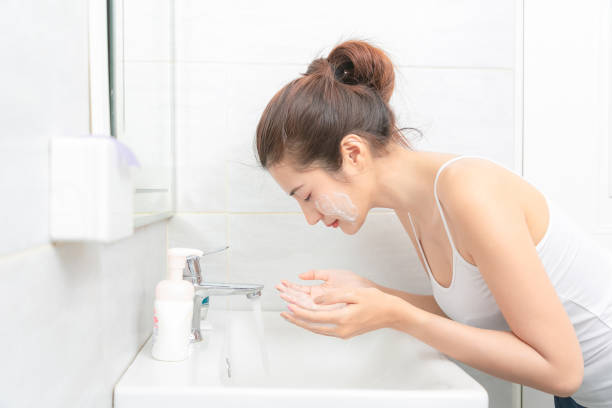 6 Benefits of Facial Washing You Should Know 6 Benefits of Facial Washing You Should Know There are many reasons why you should practice facial washing on a regular basis. It is one of the simplest and yet most effective ways to take care of your skin. Cleaning your face removes excess dirt, oil, and other impurities from your skin; helping it look fresh, soft, and glowing. Whether you have oily, dry or normal skin type, it is important to cleanse your face every day after coming home from work or school. Read on to know how it can benefit you in more than one way!
One of the most effective ways to take care of your skin The outermost layer of your skin known as the epidermis is made up of dead skin cells. It is natural for these dead skin cells to shed off every now and then, but excess buildup can lead to breakouts, clogged pores and other skin issues. Facial washing helps remove these dead skin cells, leaving behind fresh, soft and glowing skin. Facial Cleansing is one of the most effective ways to take care of your skin. It removes impurities and excess oil from your skin, leaving it fresh, soft and glowing. Cleansing your face twice a day can help you maintain clear, healthy and beautiful skin. Keep your skin healthy and glowing A healthy skin means a healthy you. It is one of the most important parts of our body and the first thing people notice about us. A healthy skin helps you feel confident and happy about yourself. Cleansing is one of the easiest and most effective ways to keep your skin healthy and glowing. It removes dirt, excess oil and impurities from your skin, thus keeping it clean and healthy. It also helps improve blood flow to your face, resulting in glowing and radiant skin. Facial cleansing removes dead skin cells, excess oil, dirt, and impurities from your skin, leaving it clean and healthy. It also hydrates your skin, leaving it soft and hydrated. It also protects your skin from infections and other skin issues. Facial Washing helps remove dead skin cells When you cleanse your face, you are actually helping remove dead skin cells. Dead skin cells clog your pores, causing blackheads and other skin issues. They might look small and unnoticeable but they are actually one of the main reasons behind clogged pores and breakouts. Facial washing helps remove these dead skin cells, leaving behind fresh and soft skin. It also removes impurities like excess oil, dirt and dust from your skin, leaving it clean and healthy. Cleaning your face twice a day helps maintain a healthy and beautiful skin. Helps you detect potential problems early on Facial washing is an easy way to detect potential problems like an early sign of skin breakouts, dryness and irritation. If you have dry or sensitive skin, you will notice itchy, red patches or patches with a scaly texture. Oily skin tends to look shiny and greasy, with blackheads and whiteheads being common issues. Facial cleansing helps remove impurities from your skin, giving you an idea about which problems your skin is facing. It is extremely important to keep your skin clean and healthy by removing impurities from it. It helps you detect potential problems early on, which otherwise could result in a serious skin issue. Maintains an ideal pH balance of your skin The pH level of your skin plays a crucial role in determining how healthy and beautiful it looks. The ideal pH level of your skin is supposed to be between 4.5 and 5.5. Anything above or below this range can cause problems like breakouts, dryness, irritation, etc. Facial Cleansing helps maintain the ideal pH balance of your skin. The most important benefit of facial cleansing is that it maintains the ideal pH level of your skin, keeping it clean and healthy. It also helps remove impurities like excess oil, dirt, and dust from your skin, leaving it clean and healthy. Facial cleansing is one of the easiest and most effective ways to keep your skin healthy, clean and beautiful. It removes impurities from your skin, leaving it healthy and beautiful. It also helps maintain the pH level of your skin, keeping it clean and healthy. Protects your skin from the sun and UV rays The sun is a great source of Vitamin D, which is essential for your healthy body. However, too much of it can lead to sun damage, including sun spots, wrinkles, pigmentation, and many more. Facial cleansing helps protect your skin from the sun and UV rays, leaving it clean and healthy. It is one of the easiest and simplest ways to protect your skin from the sun and UV rays. It removes impurities like dirt and excess oil from your skin, leaving it clean and hydrated. It also helps you apply a sunscreen on your face by cleaning it properly. This way, you can protect your skin from the harmful effects of the sun. Facial Cleansing is one of the most effective ways to take care of your skin. It helps remove dead skin cells, protects your skin from the sun and UV rays and also helps maintain an ideal pH balance of your skin. It is an easy and simple way to keep your skin healthy and beautiful. If you have been struggling with skin issues like blackheads, breakouts, and dryness, then it is time to start cleansing your face to keep your skin clean and healthy. There are many facial cleansers available in the market, but you should pick one according to your skin type. Exfoliation is a crucial part of any skincare routine. It helps remove dead skin cells, unclog pores, and keep your skin healthy. Plus, it also makes your skin feel nice and smooth after you are done with the entire process. But since exfoliation is such an important step in your skincare routine, you must know how to exfoliate correctly. Not all facial scrubs are created equal; some can actually do more harm than good if used incorrectly. Most people think that scrubbing hard on their face will remove dirt and oil from their pores more effectively but this is not true. The wrong way of doing so might even lead to increased breakouts as well as accelerated aging of the skin. Here are some tips on how to exfoliate your skin properly:
How To Exfoliate Your Skin The Right Way The first tip on how to exfoliate your skin the right way is to use a gentle scrubbing motion. You should never scrub your face with force as this will only cause your skin to become irritated and damaged. In fact, if you have sensitive skin, you should avoid exfoliating it at all costs. If you have normal to oily skin, you can gently rub it using your fingertips. This will help remove dead cells on the surface of your skin and make your face appear brighter. If you have dry skin, you must avoid scrubbing it as this will only dry it out even more. If you want to exfoliate your dry skin, you can use a loofah sponge in circular motions. This will help remove dead skin cells and dirt build-up without irritating your dry skin. Find The Right Exfoliation For Your Skin Type Another tip on how to exfoliate your skin the right way is to find the right exfoliation for your skin type. While you can use any facial scrub on your skin, it might not be as effective as it should be. If you have normal to oily skin, you can choose an exfoliating cleanser. This will remove dirt, grime, and oil from your pores and make your face feel fresh and clean. If you have dry skin, you can use a scrub that is rich in ingredients that will hydrate your skin. If you have sensitive skin, you can use a gentle scrub that will help ease any irritation and redness on your face. Use A Cleanser After Exfoliating Another tip on how to exfoliate your skin the right way is to use a cleanser after exfoliating. You must not skip this step because using just a scrub will not clear away dirt, grime, and oil as well as a good cleanser. Exfoliating your face with just a scrub will not remove sweat and dirt from your pores. It can, however, make you break out, cause irritation, and lead to accelerated aging. Using a cleanser after exfoliating will clean your pores and remove excess oil from your face. This will make your face look brighter and cleaner. Plus, it will also prevent breakouts and keep your skin smooth and hydrated. The next time you are thinking of adding an exfoliation step in your skincare routine, remember to do it the right way. Exfoliation is a crucial step in any skincare routine that can help keep your skin healthy, clean, and glowing. However, it is also a step that many people do incorrectly. If you want to reap all the benefits that exfoliation has to offer, make sure to do it the right way. Use a gentle scrubbing motion, find the right exfoliation for your skin type, and use a cleanser after exfoliating to get the best results from your skincare routine. Have you ever wondered what keeps your skin healthy and prevented it from looking yellow, dry, flaky, or cakey? The good news is your skin is a lot more than just your natural oils. Your skin also contains many other elements that protect it from damage and disease. It’s important to know how to keep your skin healthy and prevent disease so you can take care of yourself as well as others with ease. The following tips will help keep your skin healthy and prevent disease for sure.
Optimizing your hydration level is the next important step to keeping your skin healthy and preventing disease. The right amount of water is essential for all skin types, but particularly for oily skin. Water has amazing anti-inflammatory and anti-aging properties, which are why it’s super helpful to drink plenty of it. Water is also vital for the growth of your skin, keeping it all beautiful and healthy. Stay hydrated when you’re able to drink it through a water filter or by taking a hydration facial.
Eating right not only keeps your body hydrated but also keeps your organs and tissues happy. By eating foods that have plenty of water in them, you’re less likely to over consume and develop indigestion. On the other hand, carbohydrates are high in sugar and fats, which are both harmful to your skin. Remember, the more actively you eat, the less likely you’ll be to over consume.
Bundling on certain forms of physical activity is important for keeping your skin healthy and strong. Doing something repetitive enough like a 30- minute walk or a 30-mile run will get your blood flowing and help release toxins from your cells. Other types of physical activity, like dancing, will also help release endorphins, which are naturally calming and mood-enhancing chemicals.
Exfoliation, while an essential part of skin care, can be a bit too rough for some. It may feel a bit too rough for your skin type, but it’s important to know when to go easy on it. While it’s normal for our skin to become more oily over time, you shouldn’t go overboard when it comes to exfoliating. It’s too easy to irritate your skin, leaving it red, flaky, and dry. Exfoliating once a week will help keep your skin hydrated, reduce the inflammation that can cause, and keep your pores clogged.
It’s important to know how much minerals your skin has so you can properly cleanse and nourish it. This can be challenging when you’re dealing with oily skin, which is the majority of the time. Luckily, there are a few easy ways to get your minerals in your daily diet. Optimize your diet by eating calcium, vitamin D, and zinc. These are all essential for building strong bones and muscles, keeping your body healthy, and preventing damage to your skin.
The UVA (short wave ultraviolet) and UVB (long wave ultraviolet) rays are the most harmful to your skin. Absorbing too much ultraviolet light can cause your skin to become itchy, red, and flaky. Taking care of your skin is important, but so is taking your sunscreen very seriously. Keep your sunscreen cream or juice handy, because it’s one of the best decisions you’ll ever make. You can take a bought-and-paid-for Vitamin Sun SPF 50 orġ or purchase your own natural sunscreen at the store. Your skin is one of the most important organs in your body. It’s how your body functions, and by keeping it healthy and strong, you’re also keeping your body safe from damage. The good news is that you can keep your skin healthy and strong by following these tips. Stay hydrated, eat right, exercise regularly, drink plenty of water, and maintain a healthy weight. With a bit of effort, your skin will appear healthy, bright, and happy. Acne is an inflammatory skin condition commonly found in teenagers and young adults. It is commonly triggered by stress, hormonal changes, and certain types of food. Acne appears as pimples or whiteheads on the skin that cause embarrassment to the sufferer because of its visibility. It leaves ugly scars on your face once gone and can make you feel miserable at times. Acne occurs when oil glands (sebaceous glands) become clogged with sebum (oily secretions from the skin). This causes bacteria to grow inside these clogged pores making them appear as acne spots. How can you prevent getting these pimples? Let’s find out in this article!
Don’t Stress Out In our fast-paced lives, we often forget to calm down and relax. But what we are not realizing is that our bodies are extremely sensitive to stress and can easily break down if not given proper care. As a result, we unknowingly suffer from many health conditions like hair fall, acne breakouts, and more. If you are suffering from acne breakouts and looking for ways to prevent acne, then one of the first things you need to do is to calm down and reduce your stress levels. Stress can trigger hormonal changes in your body that can affect your skin negatively and increase the risk of acne breakouts. In addition to this, stress might also increase your consumption of sugary foods, which can also increase your acne risk. Therefore, you must find ways to reduce your stress and relax your mind and body. This can be done through yoga, meditation, or by simply going out for a walk in nature. Go Fresh With Your Food You might be surprised to know that certain food items can cause acne breakouts. The most common acne-causing food you must avoid is highly processed and rich in sugar food items. These include foods like potato chips, sodas, white breads, processed meats, burgers, pizzas, etc. These foods are rich in oils, preservatives, and other additives that clog your pores and cause acne breakouts. They also increase your body’s secretion of hormones that lead to acne breakouts. To prevent acne breakouts, you must consume fresh fruits, vegetables, nuts, whole grains, and low-sugar items. These foods will cleanse your body and help in reducing acne breakouts and other health conditions. You can also try some herbal teas to help your body fight acne breakouts. Watch Out For Cosmetics Although this might sound crazy, it is true. Using certain cosmetics can also trigger acne breakouts in your skin. The most common acne-causing cosmetic is the foundation. Most commercial foundations are full of chemicals that clog your pores and lead to acne breakouts. You must opt for a natural or organic foundation that does not clog your pores and does not contain any harmful additives. You must also watch out for other cosmetics like eye shadows, lipsticks, hair products, nail paints and more. They can also trigger acne breakouts if they are not pure and chemical-free. Your best bet is to go for a natural and organic cosmetic that does not contain harmful additives and chemicals that lead to acne breakouts. Have A Good Skin Care Regimen A good skin care regimen must be followed to keep your skin clean, healthy, and acne-free. This can be done by washing your face with a mild cleanser twice a day. You can also use a face scrub or a face wash with salicylic acid, which helps in reducing acne breakouts. You can also use a natural face mask once or twice a week to relax your skin and keep it healthy. Avoid using a face scrub more than twice a week as it can be harmful for your skin. You must also moisturize your skin regularly to keep it glowing and looking younger. You can use coconut oil, almond oil, yogurt, or aloe vera gel as a natural moisturizer. You can also apply turmeric on your face to fight acne breakouts. You can also try rosewater, honey, baking soda, and other home remedies to keep your skin clean and healthy. Thus, acne is a skin condition caused due to clogging of pores by excess sebum, bacteria, and dead skin cells. It occurs mostly on the face, shoulders, back, and chest. Acne can be prevented by maintaining a healthy lifestyle and following a proper diet. If you are suffering from acne, then you must follow these tips to prevent acne breakouts and lead a happy and healthy life. Do you want to have beautiful, healthy skin? If so, you need to start using facial masks. There are a variety of different facial masks available on the market, but not all of them are right for every skin type. In this blog post, we will discuss the best homemade facial masks for every skin type. We will also provide recipes for each mask! What is a Facial Mask? A facial mask is a thick, creamy paste that you apply to your face. It is usually made from natural ingredients, such as fruits, vegetables, and clay. Facial masks can be used to cleanse your skin, exfoliate it, or simply improve its appearance. There are three main types of facial masks:
Now that you know a little bit more about facial masks, let’s take a look at the best homemade facial masks for every skin type! Homemade Facial Masks for Every Skin Type
We hope you enjoyed this blog post! If you have any questions or suggestions, please feel free to leave us a comment below. Thanks for reading! |
Read More
All
|
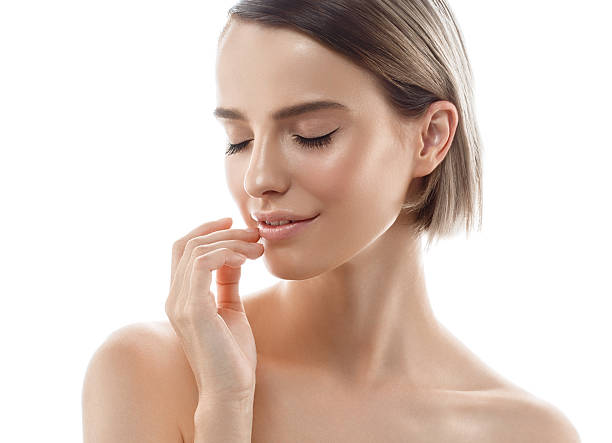
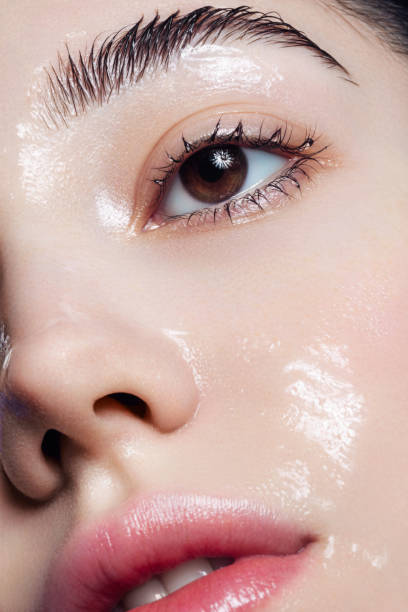
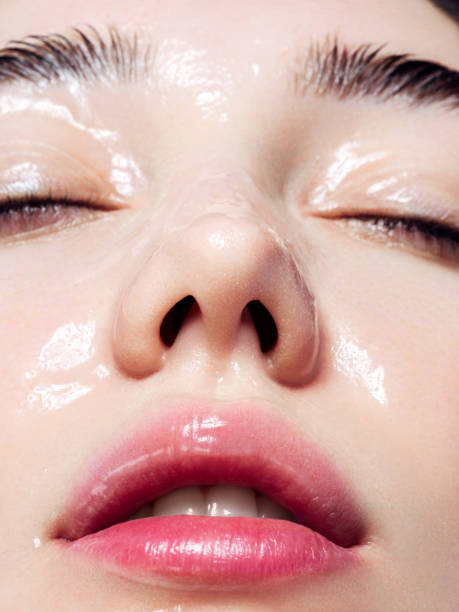
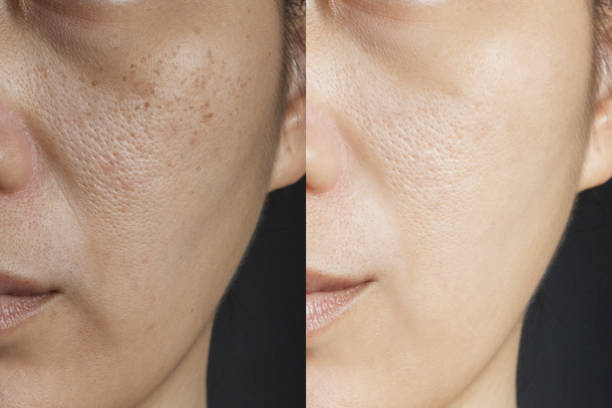
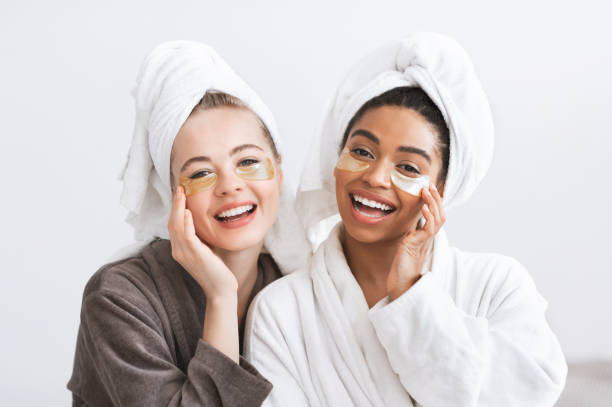
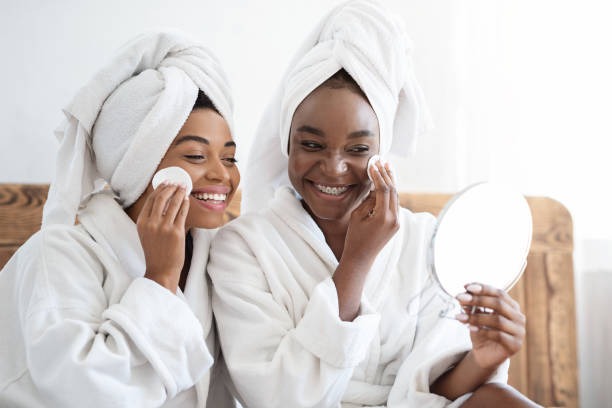
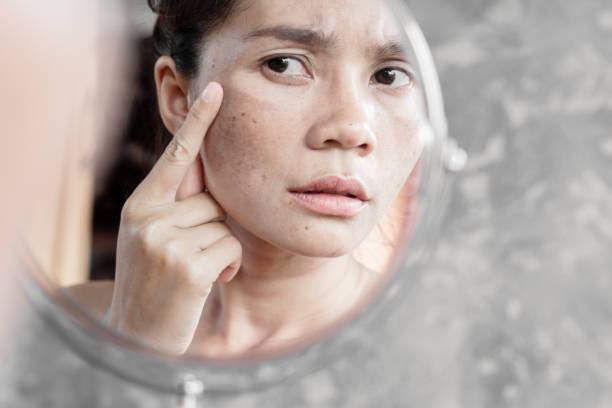
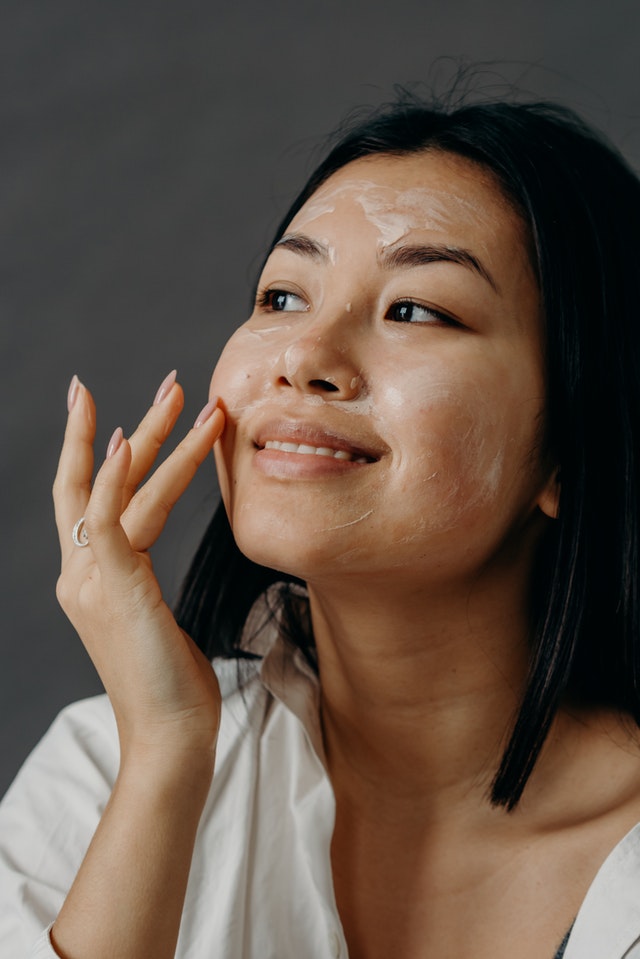
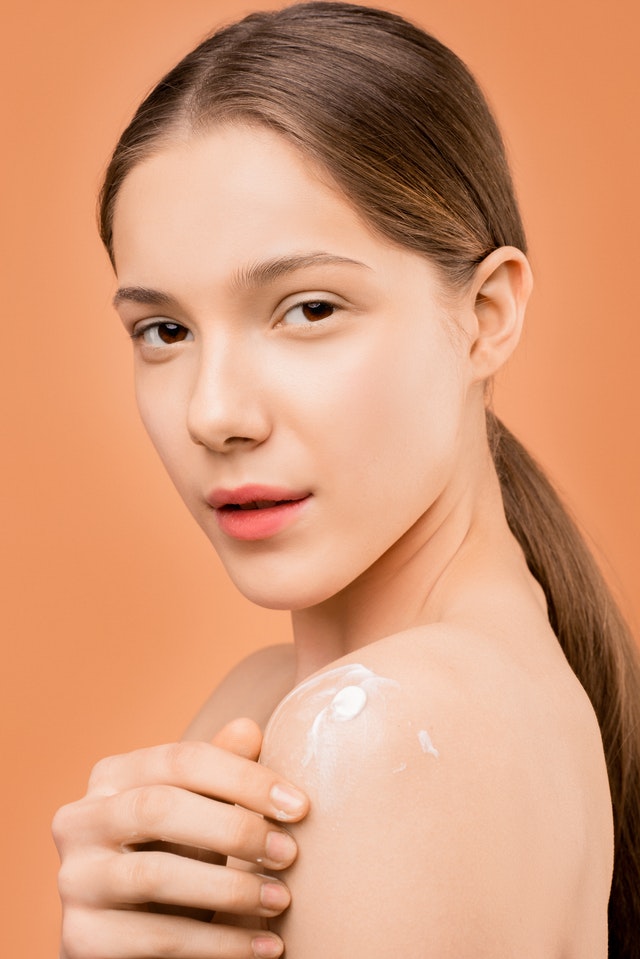
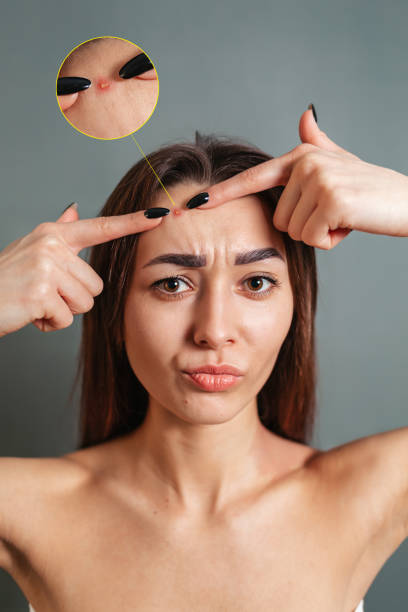
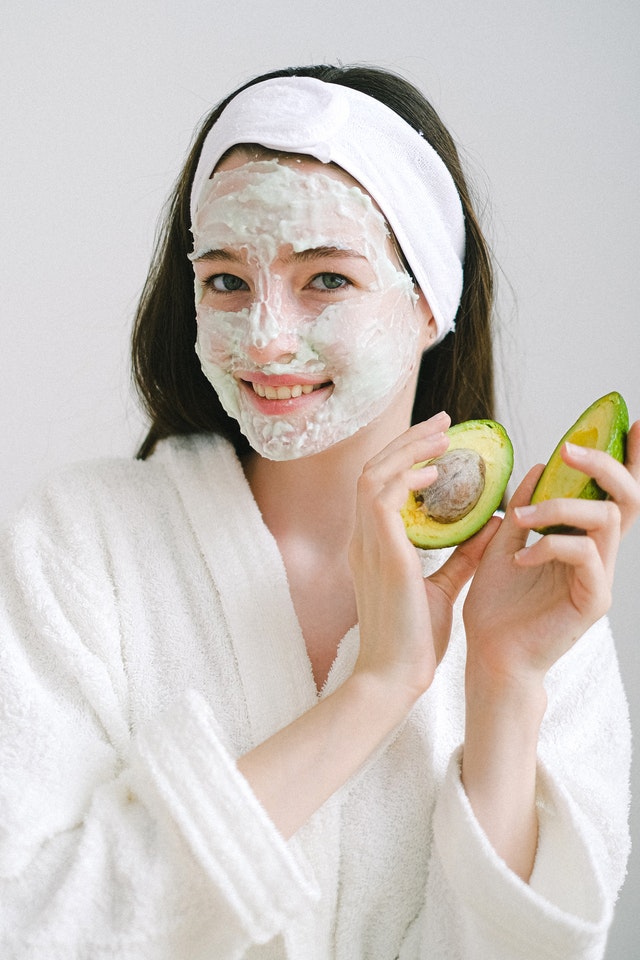
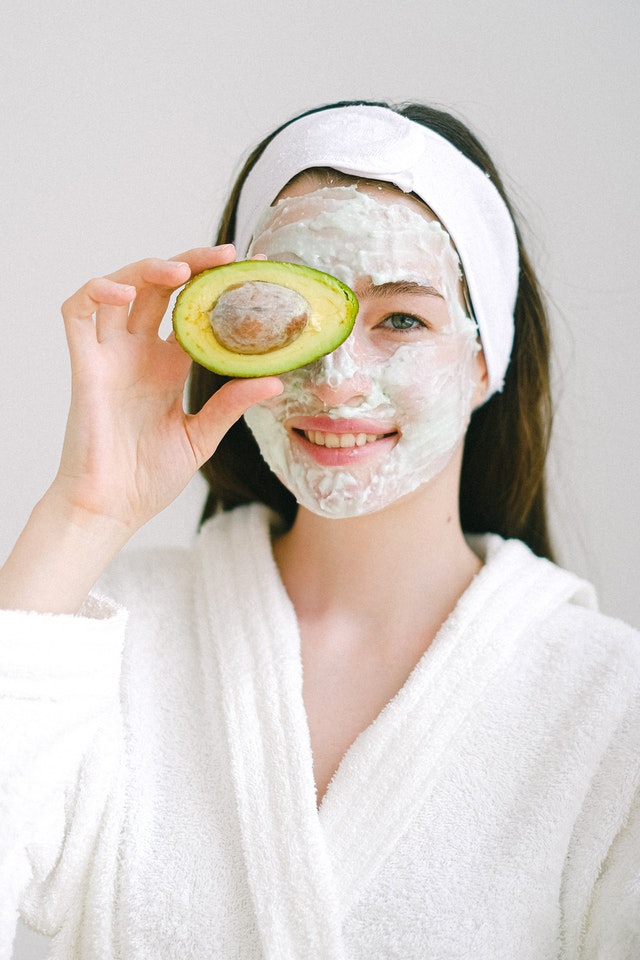
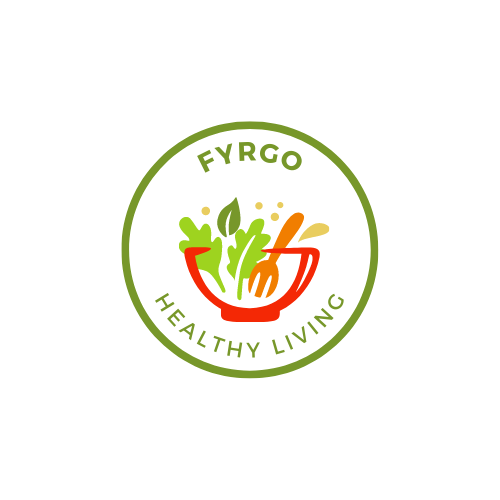
 RSS Feed
RSS Feed